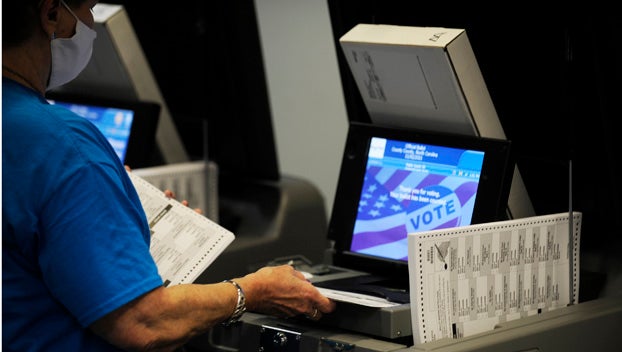Cooper declares state of emergency ahead of winter storm
Published 6:39 pm Wednesday, January 19, 2022

- Gov. Roy Cooper
|
Getting your Trinity Audio player ready...
|
RALEIGH – Gov. Roy Cooper has signed a state of emergency in advance of the second winter storm to move through the state in a week. Beginning Thursday, snow, sleet, freezing rain and ice are expected to cause significant winter impacts in central and eastern regions of the state, including Beaufort County.
“This state of emergency will waive some transportation regulations to allow for quicker storm preparation and response and power restoration,” said Cooper. “North Carolinians should prepare today for this storm and make sure they have any medications, food and emergency equipment they may need over the next few days.”
Providing a separate emergency declaration, documentation and expense tracking are important when seeking federal reimbursement for two different storm events.
While last weekend’s storm brought the most significant impacts to western and central counties, this new storm is expected to bring several inches of snowfall from the Triangle northeast toward the coast, and up to a half-inch of ice accumulation to southeastern counties. Widespread power outages begin when about a quarter-inch of ice accumulates on power lines.
To prepare for this storm and possible power outages, North Carolina Emergency Management advises people to:
· Get the groceries and essentials you need before Thursday evening. Travel will become hazardous in many parts of eastern North Carolina after that.
· Keep cell phones, mobile devices and spare batteries charged in case your power goes out
· Keep fresh batteries on hand for weather radios and flashlights.
· Dress warmly. Wear multiple layers of thin clothing instead of a single layer of thick clothing.
· Properly vent kerosene heaters and ensure generators are operated outside and away from open windows or doors to prevent carbon monoxide poisoning.
· Never burn charcoal indoors or use a gas grill indoors.
· Use a National Oceanic and Atmospheric Administration weather radio or a weather alert app on your phone to receive emergency weather alerts.
· Store an emergency kit in your vehicle. Include scraper, jumper cables, tow chain, sand/salt, blankets, flashlight, first-aid kit and road map.
· Gather emergency supplies for your pet including leash and feeding supplies, enough food and for several days and pet travel carrier.
· Do not leave pets outside for long periods of time during freezing weather.



